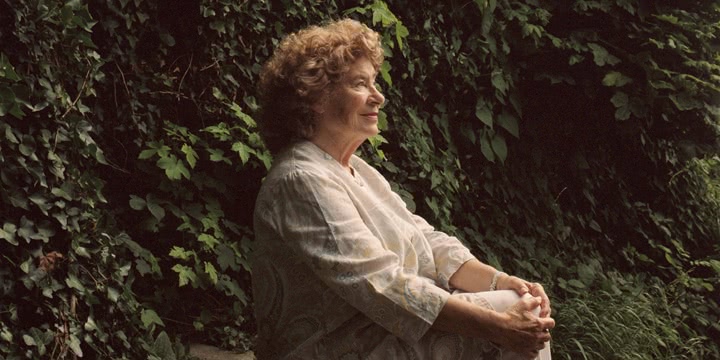Shirley Collins is 81 years old and her music career has been inactive for the better part of four decades.
And yet her forthcoming album Lodestar is the subject of rife intrigue and anticipation.
In the years since her last release, the English folk singer has become something of an icon. Her recordings made between the late 1950s and late 1970s have influenced multiple generations of folk performers, including Billy Bragg and Angel Olsen. On top of this, she’s received such accolades as a Gold Badge from the English Folk Dance and Song Society in 2004 and an MBE for services to music in 2007.
More recently, Collins signed with Domino Records for the release of Lodestar,which has turned up the hype even further. “I’ve never had quite such a reaction to an album as I have with this one,” she says. “It’s extraordinary and people have been really very kind about it as well.”
An innovative figure in the 1960s English folk revival, where she worked closely with her sister Dolly and alongside the Albion Country Band, Collins is no stranger to the album release process. However, even with her wealth of experience, she feels some butterflies about the new effort.
“There is a sort of nervousness about it because of not having made an album for over 30 years,” she says. “My voice isn’t the voice that it used to be. It’s a lower voice now with a few bits of insecurity in it. But what’s been lovely is that everyone’s reacted so well to it, and that’s just such a relief because I was a bit nervous about what people would think of it. I’m quite pleased with the way the album has turned out as well. I think it’s got lots of variety on it and wonderful musicians playing with me.”
Amid the excitement surrounding Collins’ re-emergence, it was also reasonable to feel some apprehension. Not only has it been 38 years since her last album, but she was forced to give up performing in the early ’80s due to the voice-debilitating disorder, dysphonia. There ensued a lengthy period when Collins assumed her recording days were over, but that started to shift in the early years of this century.
“[Musician] David Tibet phoned me up one day and said, ‘I really love your music. Can I come and talk to you about it?’ I just burst into tears and said to him, ‘I thought I’d been forgotten.’ He asked me on several occasions over the years if I would consider singing at one of his concerts and I kept saying no. Then I started to say yes, but when it came to it I couldn’t do it. Then finally 18 months ago I said yes.”
It was this comeback performance that sparked the prospect of a new Shirley Collins album. “Ian Kearey, who’s one of the instrumentalists on the album, came along and accompanied me and we sang a couple of songs at the Union Chapel in London in front of 600 people. I was a bit nervous, but the audience were really lovely and then I started to think, ‘I can still sing a bit.’ And also the songs that I sing, I’ve learned them mostly from field recordings of people who are in their ’70s or something. So those older voices are actually ones that I learned to love.”
Lodestar is made up of English, American and Cajun songs dating from the 16th century to the mid-20th century. Collins spent much of her early career collecting traditional English and American folk songs and recording versions that framed the originals in a different context, and she managed to uncover a few more hidden gems for Lodestar.
“The first one, the ‘Awake Awake’ song, was written in the 16th century when there was an earthquake in London and part of Old St Paul’s Cathedral was toppled. There was a ballad writer at the time, and a religious man, who wrote this song warning the people that this earthquake was a sign of God’s displeasure and if they didn’t change their ways there would be worse disasters.
“What’s remarkable about it for me was that I had never heard this song outside of the printed version I saw in the book The Folk Songs Of Herefordshire. And in 1909 Vaughan Williams actually noted it down from a country woman in Herefordshire. I thought, ‘Where has this song been all that time?’ because there weren’t any other versions of it around. How can a song disappear for 400 years and then show up again? So that was a song that had completely fascinated me for a very long time.”
The remainder of the tracks on Lodestar possess a similarly unique significance for Collins. “I wanted to do two songs from America from when I was there in 1959 collecting folk songs in the Deep South with Alan Lomax. The songs just floated into my mind, I think, and then once we started trying to do arrangements for them, there they were.
“Equally there were a different ten songs I could’ve chosen, so I’m just hoping I can make another album and fit the next lot in.”
[Shirley Collins photo by Eva Vermandel]
Lodestar by Shirley Collins is out Friday November 4 through Domino.

































